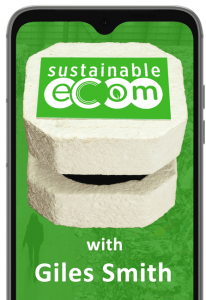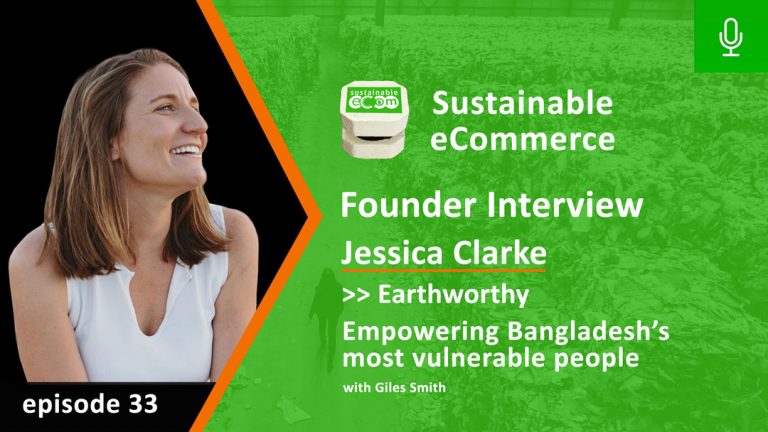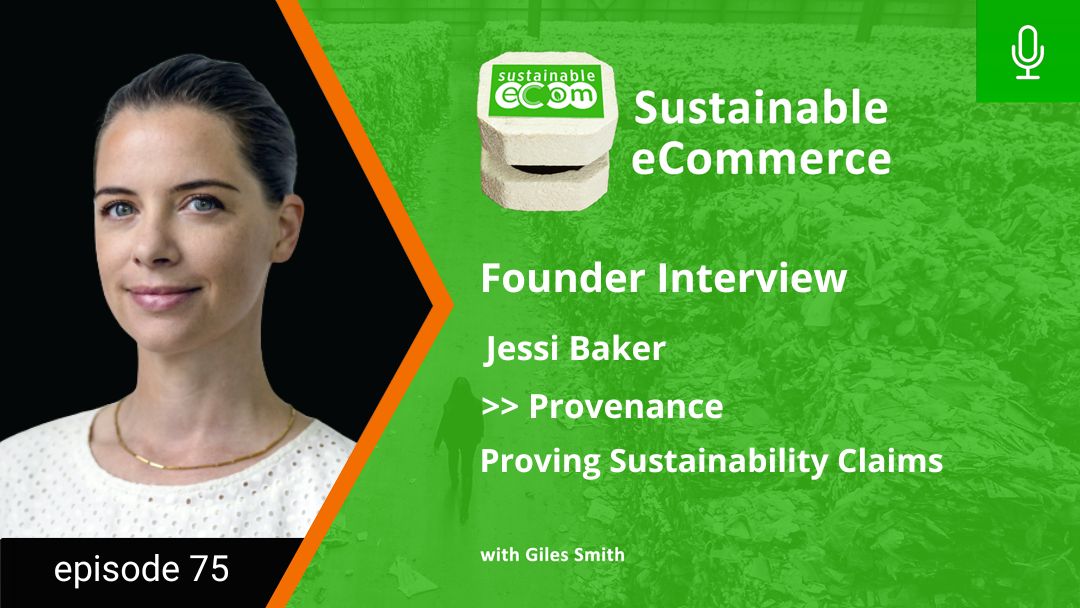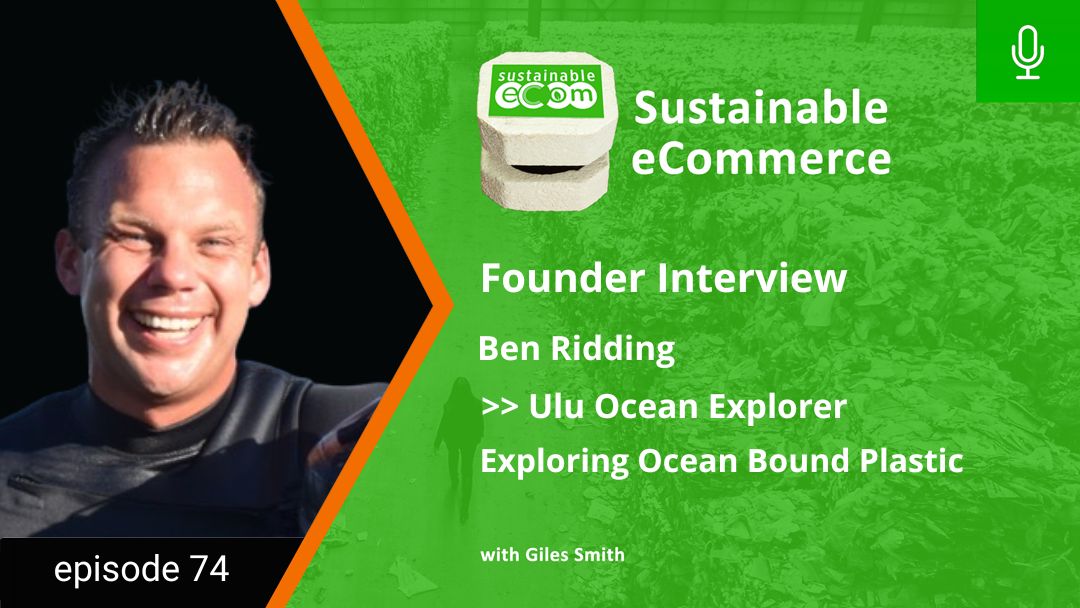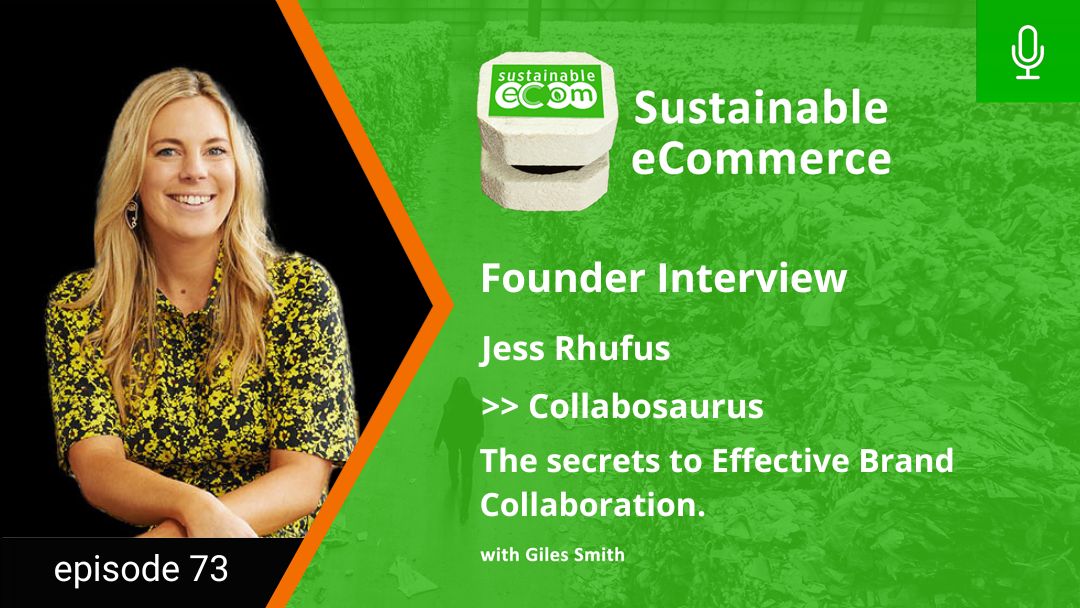Welcome to Episode 33 of the Sustainable Ecommerce Podcast!
Sustainability and ethical supply are two very different topics, yet at the same time its hard to imagine being one without also doing the other.
Some organisations take their purpose to a whole new level where they’re thinking about sustainability, but the core of their business is founded as a social enterprise, designed from the ground up lift the living conditions of people in their supply chain.
My guests today are two remarkable women, Jessica & Hannah from Earth Worthy, a really beautiful social enterprise bringing jute homewares to Australia and supporting the lives of female artisans from Bangladesh who were injured in a factory collapse.
We chat about sourcing in Bangladesh, what a remarkable fibre Jute is, how business buying is rapidly shifting towards sustainable and ethical supply and best news of all, how you can work with Earth Worthy to include their products in your brand offering under white label.
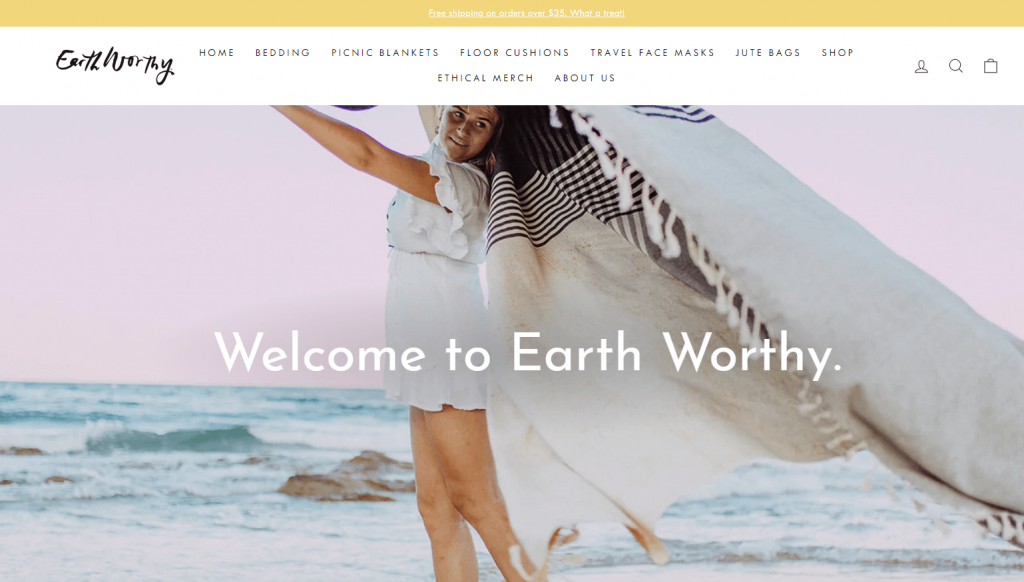
Giles Smith: Jessica & Hannah, welcome to the show! What I'd love to do first is to get you guys to introduce yourselves and talk about why you started up Earthworthy.
Jessica: Thank you. I'm Jess. I'm the original founder of Earthworthy. My background is in international development, working with not-for-profits and corporates. I'm really passionate about people and the planet and making sure we do business in a ways that is both sustainable and ethical.
Hannah: I came to Earth Worthy probably about six months ago now. We got chatting at the beginning of 2022 and I joined her and we've tried to take this thing to the next level and it's so far going really well!
Jessica: Just speaking a bit more of how Earthworthy came to be, I had actually been working in Bangladesh in environmental advocacy, and so it really was just one of those opportune times where all the stars aligned and everything sort of came together.
Giles Smith: Can you tell us more about your mission?
Jessica: So, Earthworthy was conceived not long before the pandemic. The first plastic bag ban happened in 2018. I got back to Bangladesh in 2019 and then March, 2020 when our first lockdown in Australia began is when my first shipment of bags arrived.
The actual original intention of Earthworthy was to be a social enterprise. In Bangladesh, we work with an amazing group of women who actually survived a garment factory collapse. It happened in 2013 and it was horrific. It killed over a thousand people and injured over 3000. So, we met a wonderful organization called Nebu, which means freedom, who employ women who survived this accident.
They are a relatively new organization, so we are supporting them and helping them grow as well, but we're able to create employment opportunities in a safe and fair working place for these women, which shouldn't be a novel idea, but unfortunately sometimes it is.
Then in Australia we have the idea of doing something similar to the big issue magazine, basically people who maybe at risk of homelessness or are homeless, sell a magazine out on the street and keep half the sale prices. A really simple concept, allows them to have a bit of money in their pocket and also that social interaction. And we thought, why not do the same thing with bags? So people could sell jute bags that are completely plastic free out the front of supermarkets and keep half the sale price.
But this was all just before covid hit. All of a sudden that concept of selling bags out the front of supermarkets was not really suited to our current times when any sort of contact with each other was highly discouraged.
But what Covid did give us was an opportunity to work on our supply chains and really build robust and solid supply chains with our makers in Bangladesh and ensure that we can realize these sustainable and ethical outcomes in our supply chain.
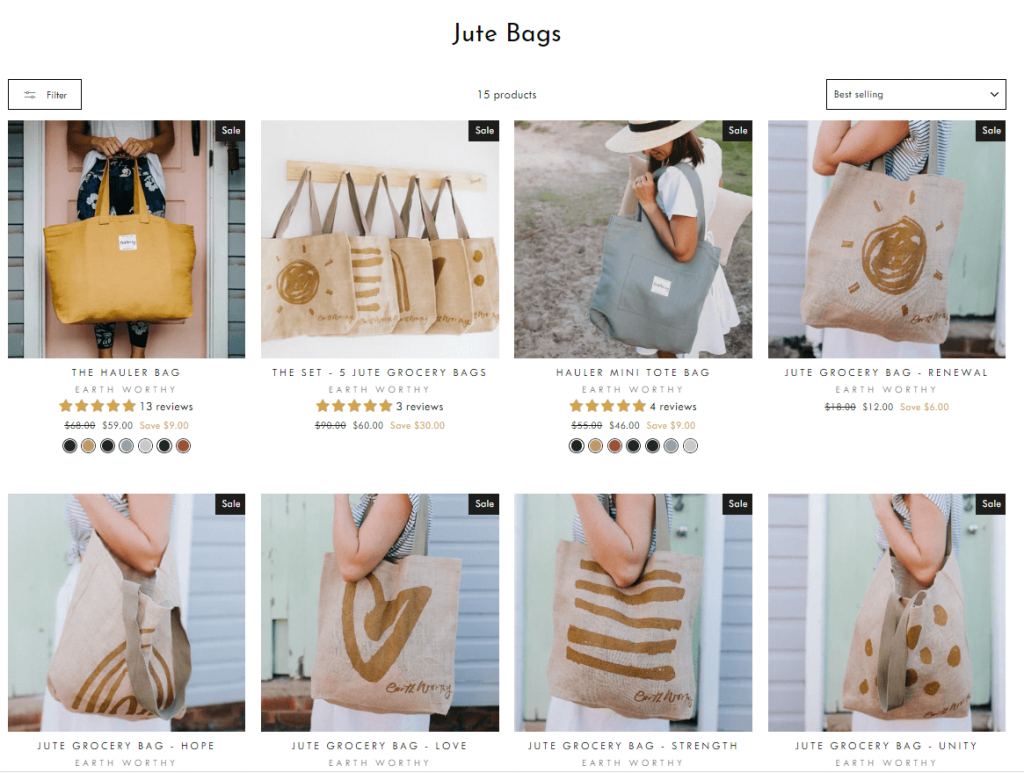
Giles Smith: Can you talk to us a little bit about how are you managing that process from afar and certainly through Covid where you presumably couldn't go and check in.
Jessica: Yeah, it's definitely been a challenge. As I mentioned earlier, I'm really lucky that I had had some time living and working in Bangladesh, so I did have some relationships that I had already established.
So, but I didn't have a manufacturer of bags when I started this process. So when I went back over to Bangladesh in 2019, I really did want reach out to organizations that I thought were doing things well. Bangladesh has some of the biggest social enterprises on the planet, which is pretty cool.
So one of the largest not-for-profits is Brac, and it's a not-for-profit that started in Bangladesh is now a global organization and they have a really large social enterprise.
So I started by reaching out to their exports team. To see if we could work together. It can be challenging, in Bangladesh, it’s not as simple as saying “show me your certifications, let's go”. They're not at that stage yet. Its not easy and it doesn’t always work, especially with shipping. There have been so many delays between making the product and having it arrive here in Australia.
Giles Smith: What's it like to interact with businesses there? Is it somewhere where you can easily find and interact with the manufacturers themselves?
Jessica: Having lived over there, I am able to go direct with the organizations that we're working with, which is a huge benefit. It's not as formalized as say, somewhere like China.
Bangladesh though is changing rapidly. They, have a huge ready-made garment industry and they service all the big brands around the world, so there's huge capability there. It's a country that is one of the least developed countries in the world. There is huge amounts of poverty there, but they also have massive growth.
But they're also a country that's hugely impacted by climate change and is one of the most vulnerable countries to climate change on the planet. They are a country, the land size, say two-thirds of Victoria, but they have 170 million people living on that land, and a lot of it is waterways.

Giles Smith: Tell us a little bit about jute is it such an awesome material.
Jessica: So I absolutely love Jute. It's probably one of the most sustainable plant fibers on the planet. It grows prolifically in Bangladesh, so it needs very little input of chemicals or pesticides. It has a really short growing cycle, about 12 weeks, and it actually leaves the soil richer, so when it's harvested, you've actually added nutrients to the soil. So it's a pretty impressive material.
So jute was referred to the golden fibre in Bangladesh because it really was important and valuable to their economy.
Probably most people would know jute from say, a Hessian bag or a coffee sack, But you can have more refined and higher end materials made from Jute.
Giles Smith: What can you use it for?
Jessica: It's probably not great for something like clothing because it is a bit raw and rough.
But for, say, packaging bags, it's a really strong, useful fiber. It is naturally antibacterial, it can absorb moisture, so you do have to be careful with that.
Hannah: There's also a lot of applications in building and construction, for example building site fences or festival fences, insulation type fibers as well.
Giles Smith: Using it for those kind of large scale applications is really interesting. Is Jute a recyclable material or would you compost it at end of life?
Jessica: It's a home compostable material, so, recycling should always be a last resort. It doesn't leave any trace like those plastic products will.
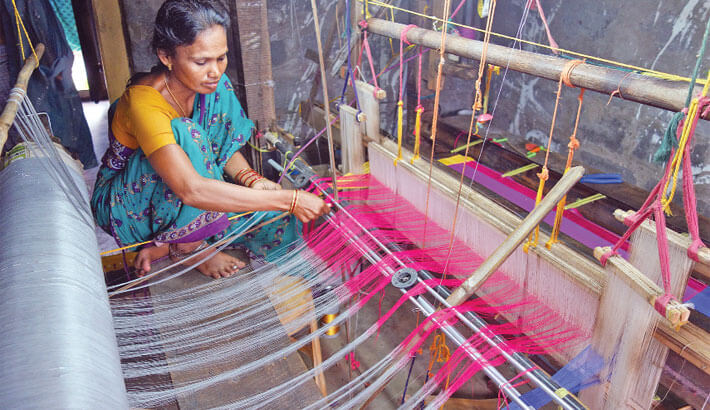
Giles Smith: What's working for you in terms of how you're growing a business?
Jessica: Probably a big part has been partnerships and collaborations. Lots of partnerships and people really resonate with our story and what we're all about.
Our wholesale and in particular our custom orders is where we really want to focus our energy for the coming financial year, for the next 12 months. We see that as a good way to grow the business sustainably.
Hannah: I think that's probably the biggest thing that we've seen recently is that the products make the customer feel good and they can talk about the product with their friends and family and feel good about the story behind it.
But there's a real push in business to move to more sustainable product sourcing. And certainly in the partnerships that we've had to date, there's a real enthusiasm for our product and our story to be part of their business’s, corporate social responsibility stories.
Giles Smith: Tell us a little bit about your white labelling service. What can you do? What are your capabilities? How do you work with people?
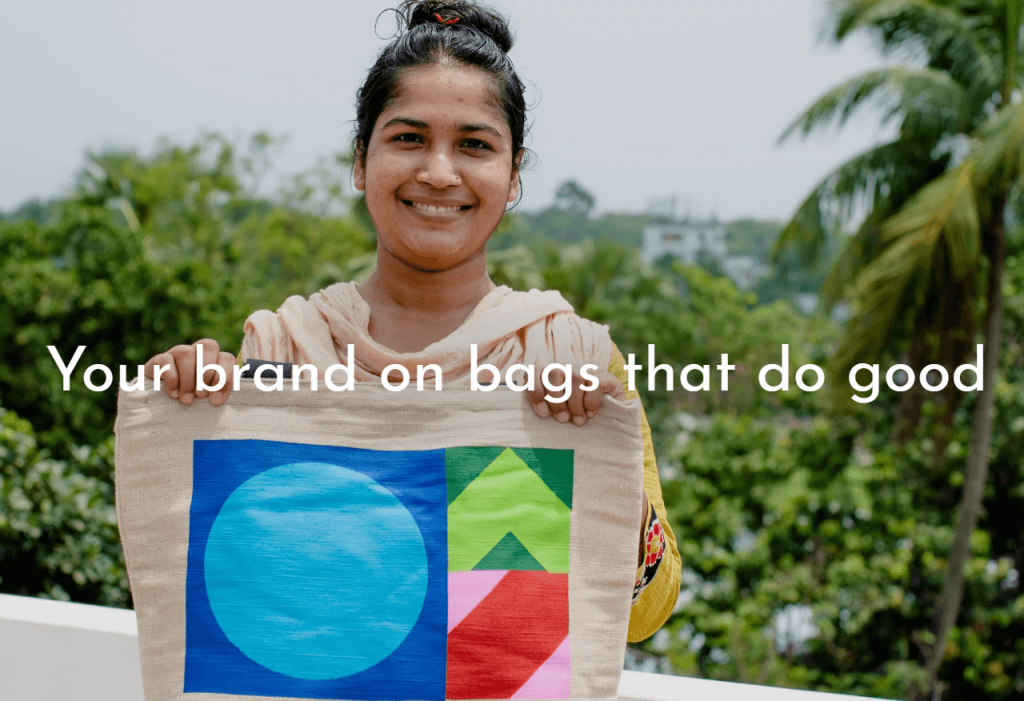
Jessica: We can customize our current range of bags, so we're happy to white label. On the inside it explains the difference that the bag makes and the impact through Earthworthy. And then we can also customize a range of products made from Jute.
Giles Smith: What if they want to work with you to make custom products?
Jessica: If it's a brand new product, there's definitely a longer lead times. So we need to design the product with them. You'd need a good six months for that, but if you want to use one of our bags off the shelf, you can have that within a couple of days.
Hannah: We can also support you with slight modifications to the bags we already have, like extra pockets.
Giles Smith: OK, so literally everything is done in Bangladesh and then you receive the finished goods basic here in Australia?
Jessica: Yeah, that's a big outcome of what we're doing. At the moment, we do every element of the bag in Bangladesh and we're really proud of the quality that our makers are producing as well. Everything is handmade, even down to the tags that you'll see on an Earthworthy bag. They've all been hand printed, which is pretty special.
We say our minimums are from 250, but we love working with small business, so we have been very flexible and we do do our minimums from 50 pieces for our higher end product.
Giles Smith: What is next for earth worthy?
Jessica: Currently we are focusing in on a few things and we're actually reducing our product range. Hand loom products are one of those where they're done in rural Bangladesh. They don't use any electricity. They're using looms that are a hundred years old that are still working effectively and we can create these beautiful pieces that are made with love and that people will have for years to come.
Hannah: I think it's fair to say that the Big Issue model, the dream, the original plan is still there. Certainly the intention behind focusing on B2B and corporate orders and increasing our capacity in that sense is to really stabilize the business and be able to then move into that real social engagement model in Australia.
Giles Smith: How can people start working with you?
Jessica: Go to our website, it’s earthworthy.co. There's heaps of information there for our product range and also our custom orders.
Giles Smith: Thank you Jess and Hannah!
Top Takeouts
Bangladesh is absolutely the home of Jute. The grasses that form the fibre grow in the miriad waterways throughout the country, and as fast growing plant, it’s a fantastic 100% sustainable carbon trap. Its strong & durable making it perfect for bags, rugs and the like, and of course completely home compostable for end of life.
Not only is Jute super-sustainable, but the way Earth Worthy’s products are made is ultra-low impact, including hand loom and hand printing.
So if you’ve been on the hunt for a partner to help you with any of the products we’ve been speaking about in today’s show, I highly recommend you check out what Earth Worthy can arrange for you. What a beautiful story that adds to your overall brand messaging!
So I hoped you enjoyed hearing from Jess & Hannah. Head over to Earthworthy.co and check them out!
I’ll be back next week with more stories from the world of Sustainable Ecommerce, so until then, keep building your brand for a healthier planet!





